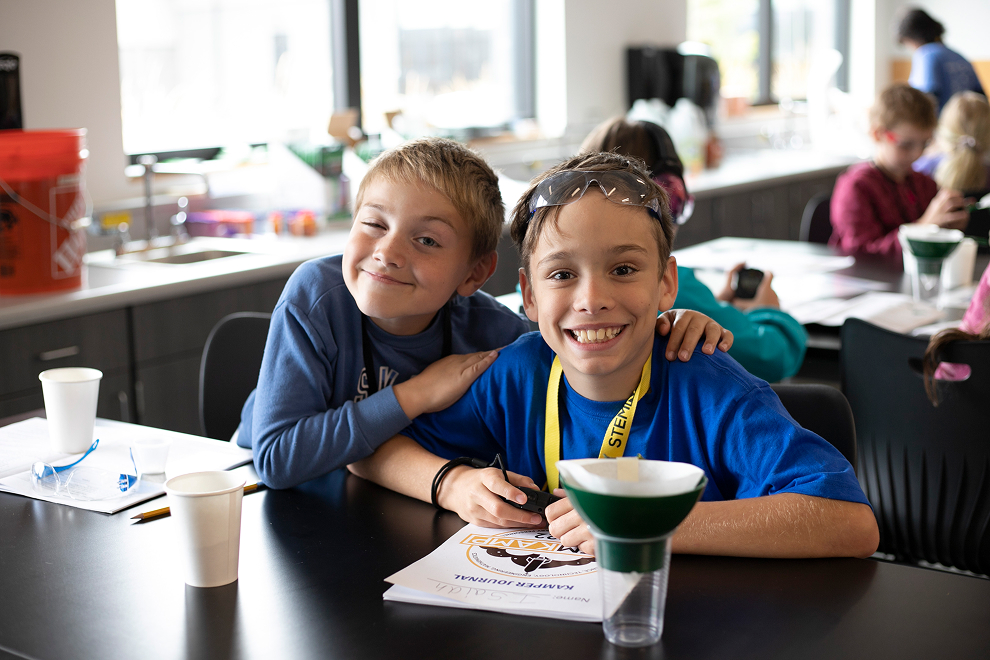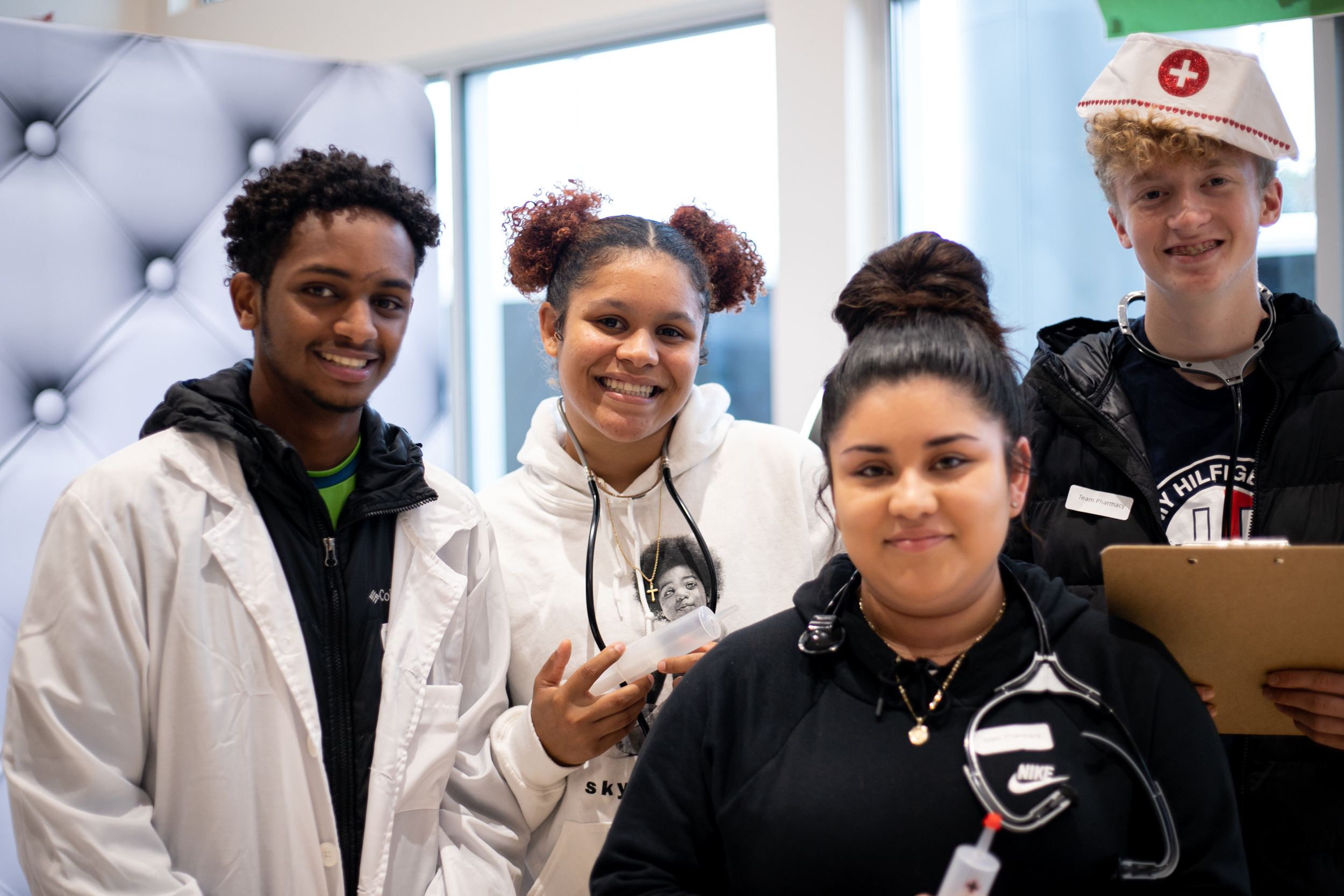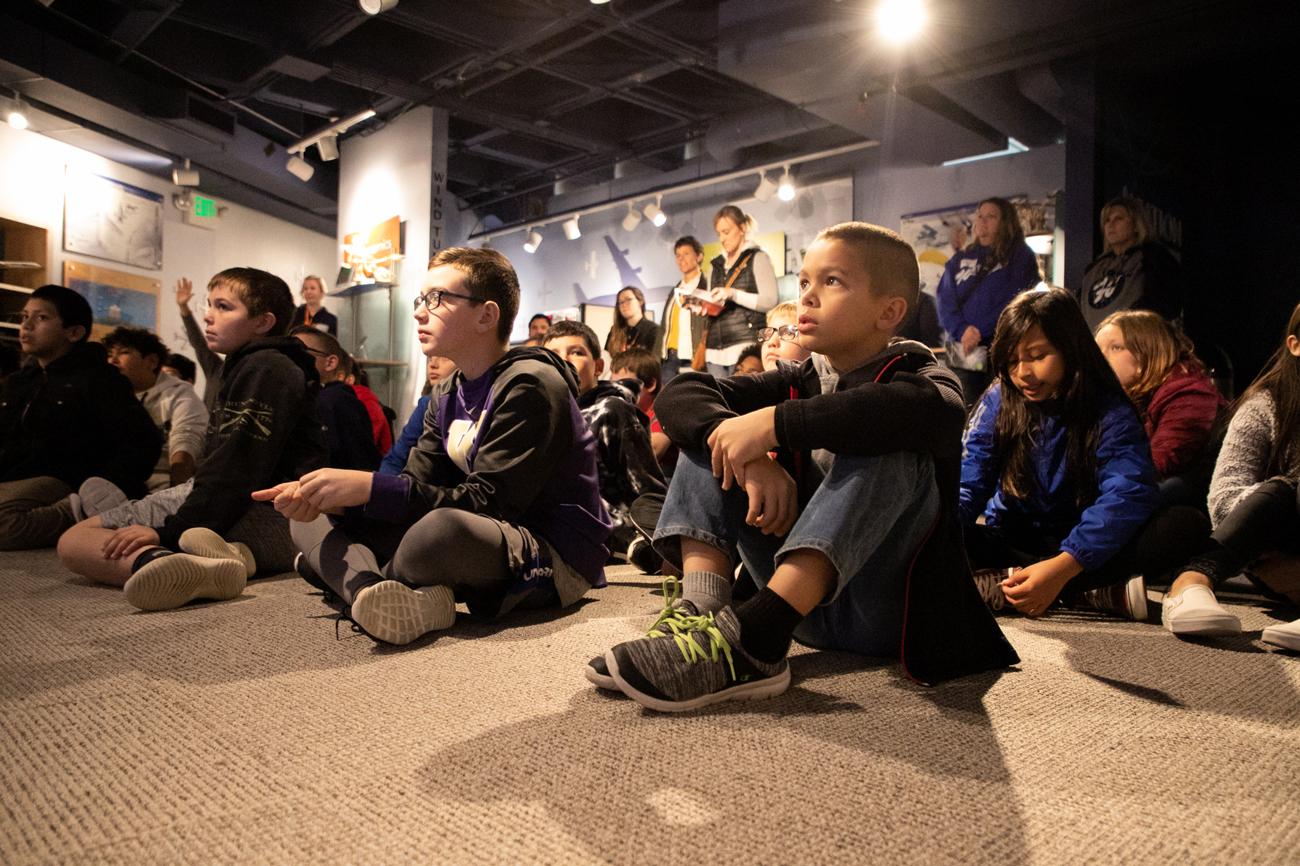We see a future where STEM literacy and opportunity meet—unlocking pathways to meaningful careers, economic mobility, and lifelong learning for every student.

At Washington STEM, we work to connect the dots between the fundamental life phases and systems that young people navigate as they progress toward college, post-secondary training, and into careers.
.jpg)
What we’re working toward:
Accessible, high-quality, culturally responsive childcare settings that foster curiosity, numeracy, executive functioning, and teamwork.
These are the building blocks children need to enter kindergarten ready to learn. This is the foundation of STEM literacy and belonging.

What we're working toward:
An educational experience that cultivates STEM literacy, encourages career exploration early on, and prepares students to transition from high school to post-secondary learning.
When systems align and adults are equipped to support students fully, students graduate high school ready for what’s next.

What we're working toward:
All learners have equitable access to credentials and careers through multiple, navigable pathways, with robust adult support to help them transition from high school to lifelong learning.
The education journey doesn't stop at graduation. Young people need guidance every step of the way to ensure they reach their goals and transition into careers.

Washington STEM directly supports our state-wide partners through targeted community investments, data and measurement, and technical assistance.
We are leading the way in creating open-source, actionable data dashboards and reports that connect the dots between childcare access and early learning, student indicators, and labor market projections.
Our approach is grounded in data justice principles, which means we rely on insights collected with and for the communities impacted by our work.
OF STUDENTS WANT TO CONTINUE THEIR EDUCATION AFTER GRADUATION.
In 2023, 45% of students didn’t enroll in college the year after high school—yet 90% of surveyed students say they want to pursue further education.
2023-25 High School to Post Secondary Survey
LEAST AFFORDABLE IN THE NATION.
Washington ranks 3rd least affordable in the U.S. for infant care in family child care programs.
Child Care Aware: Child Care in America: Affordability Analysis (2024)
OF JOBS WILL REQUIRE CREDENTIALS.
Over 70% of entry-level jobs with family-sustaining wages will require a 2+ year credential in Washington in the next 5 years.
Washington STEM Labor market Dashboard

We leverage partnerships and data to fuel advocacy and change systems.
Our place-based and statewide initiatives allow us to identify, scale, and spread effective solutions that serve as models for broader systemic change.
We’re democratizing access to data on student indicators, childcare availability, and labor market projections so we can hold systems accountable in creating equitable opportunities for every Washington learner.
We work with communities across Washington to shape our state agenda, ensuring that investments and policies deliver the strongest outcomes for students and our economy.

This is ambitious work, and we can’t do it alone. Learn more about how you can support us here.